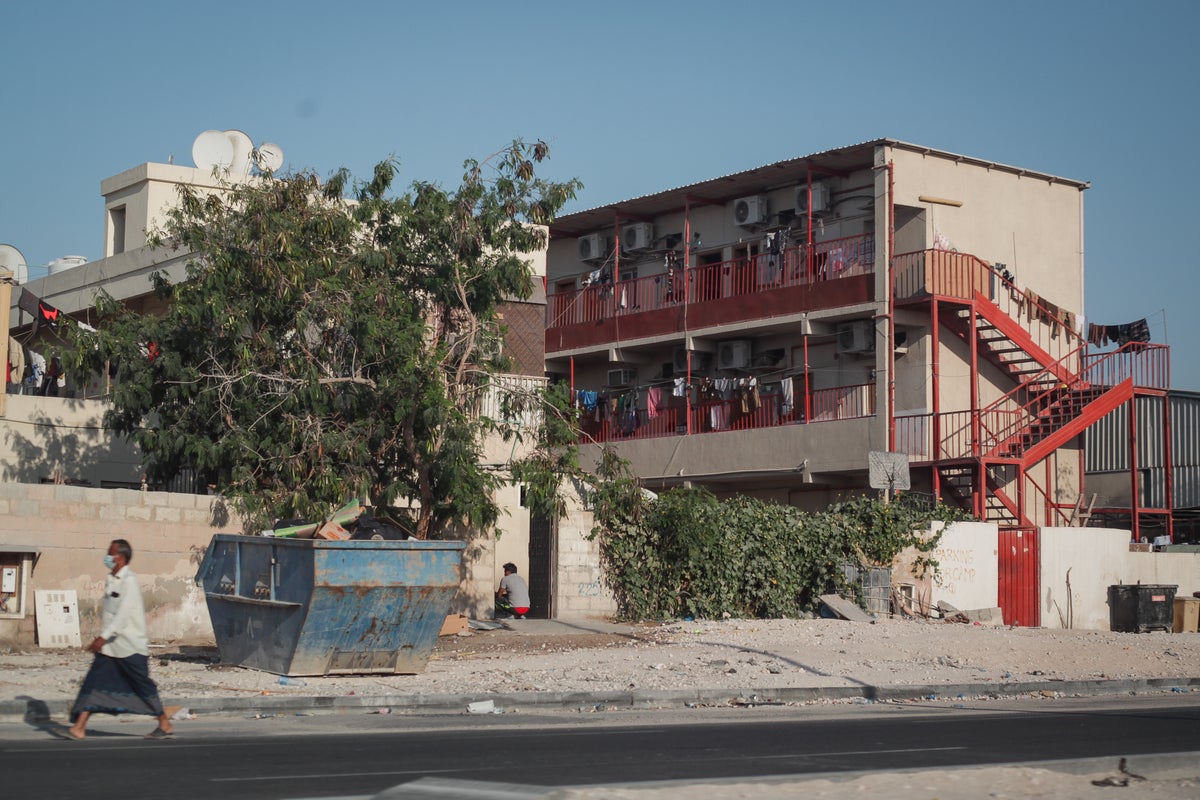
On the ground lie bottles of vodka, whiskey and beer, partially buried in the sand.
Hidden behind parked cars, piles of scrap metal and abandoned trucks, men stagger in the dark next to illegal alcohol sellers who serve customers who pay in cash.
Some 20km (12 miles) south of the glitzy and ultra-modern capital of Qatar, Doha, stands the Industrial Area.
It is one of the most important parts of the prosperous Gulf state but rarely features on the tourist trail, nor attracts outside visitors.
The prosaically-named Industrial Area and nearby Labour City is home to a large number of Qatar’s total population. Up to 800,000 Asian and African workers, mainly employed as construction workers and security guards, live packed in overcrowded accommodation, far out of sight from the Qatari capital’s affluent neighbourhoods.
Work is tough, many here are not paid on time and some are harassed by their employers, yet they form the backbone of the blossoming Qatari economy. Here, they drink to forget. Alcohol sales in Qatar are strictly regulated, yet, illegal networks exist to sell regular or homemade liquor to migrant workers in search of an escape.
Ugandese security agent Albert*, 29, landed in Qatar four years ago and has regularly seen those attending the Industrial Zone’s illicit alcohol market, known among workers as “California”, or “The Field”.
“A lot of workers here get hooked on alcohol and never fully recover. Every Thursday night, fights break out because guys come back to their dorms drunk. In the summer, workers often die of heatstroke after falling asleep outside drunk after an evening at The Field,” he tells The Independent.
Thursday nights are important as it is the evening before the one day most workers will not have to work in the week.
“Please, friend, do you have something for me?” asks a trembling barefoot man dressed in a shabby sweater. “Sorry, I am broke this month," replies Albert.
“Another worker who is no longer paid by his company and fell into alcohol,” he says quietly, recalling numerous suicide attempts among foreign workers in the Industrial Area.
A few minutes later, police are spotted. People scatter.
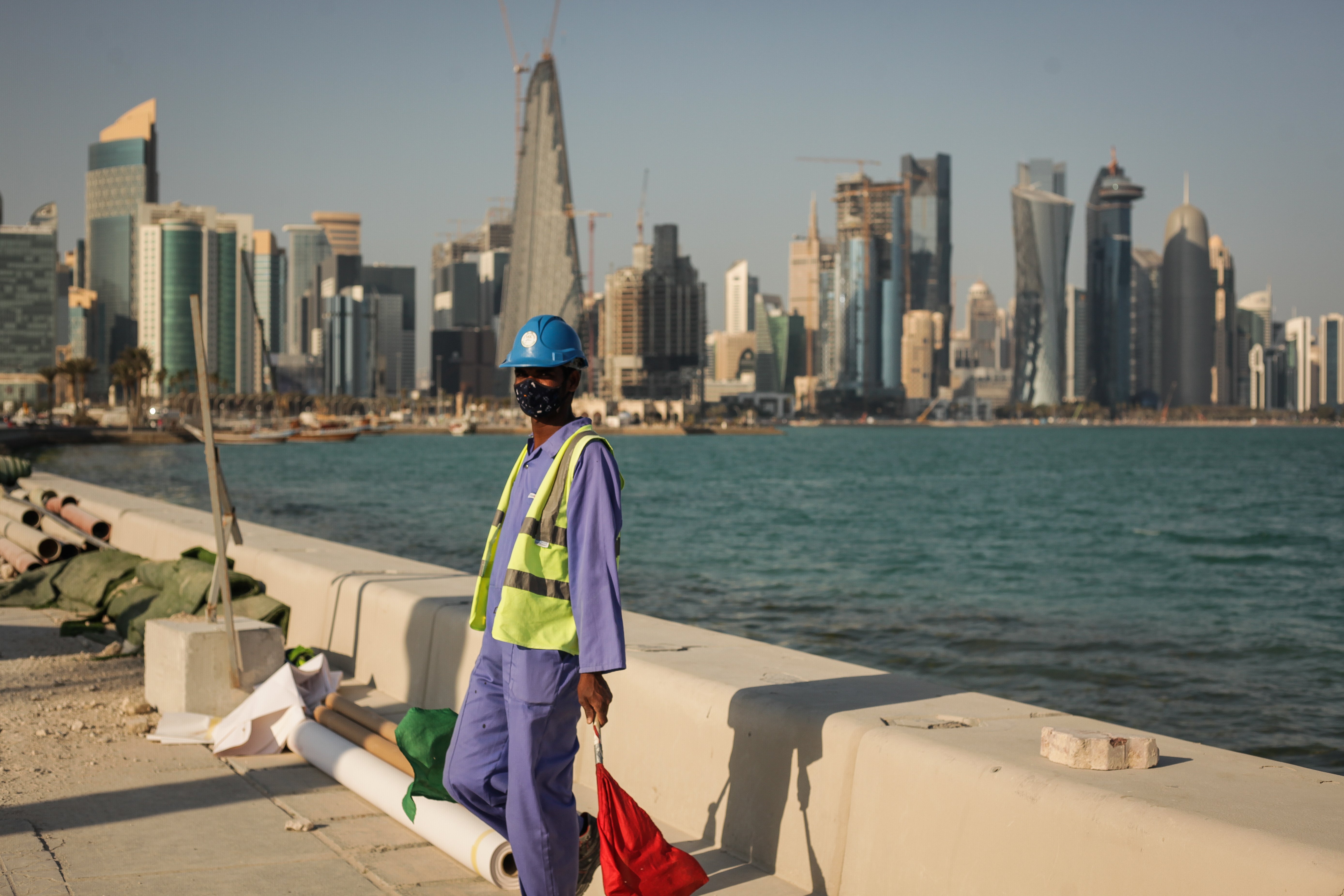
“The red car you see there belongs to Internal Security forces, they show up from time to time to seize stocks of alcohol. But the black SUVs belong to police forces, and they primarily look for drugs,” he explains.
From afar, Albert witnesses Qataris dressed in white thobes – men’s traditional attire in the Gulf region – and equipped with flashlights to inspect abandoned vehicles, pulling out several plastic bags and placing them in their car boots.
Workers who fled hide close to The Field, patiently waiting for the police to leave.
“If they catch you with alcohol, they just grab cans and bottles before telling you to go away. They have a nickname for us: kachara [garbage in Arabic]. But the reality is that they don’t really fight against this traffic of alcohol. Qataris want to keep us as low as possible to show us what our lives are worth: nothing,” he says.
Albert’s friend, Dominic, is bedridden at nearby Asian City.
He sleeps in a cluttered room with four beds, four wardrobes and a few personal belongings hung here and there.
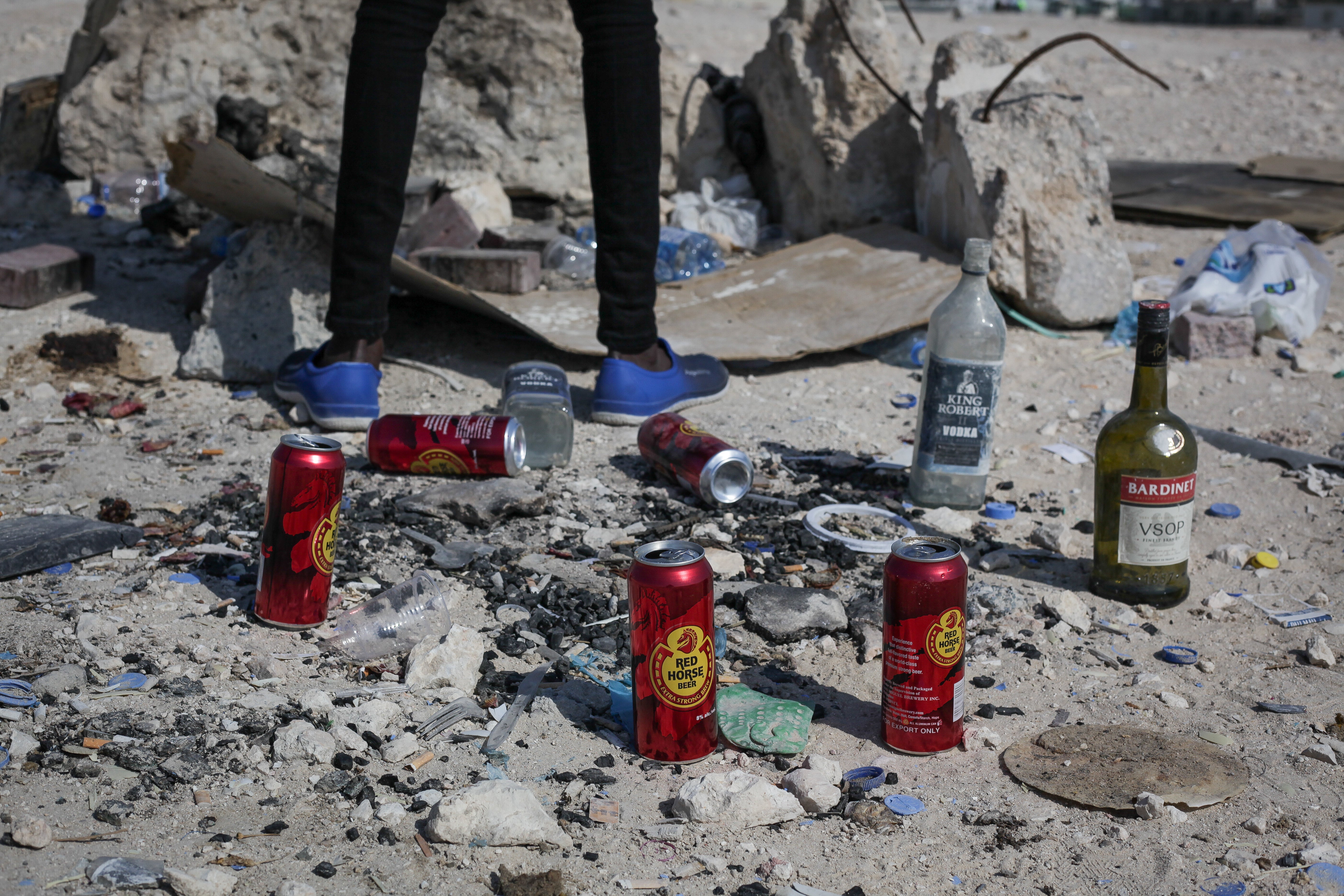
Both of Dominic’s ankles were broken after a work-related accident. Despite multiple surgeries, the Kenyan security agent still struggles at work where he is required to stay standing up for several hours straight.
“I asked my company to get a job that fits my current physical condition, but they have nothing else available. In the meantime, they refuse to pay my medical bills and stopped sending my salary while I still have to complete four months of rehabilitation.”
In August 2020, Qatar boasted that it had abolished its much-criticised labour management system called “kafala”, which gives employers tremendous control over staff and was often likened to modern slavery.
The World Cup 2022 host said it had introduced a flurry of progressive reforms. These include a minimum wage for workers, a payment protection system which seeks to ensure staff receive their salaries and greater freedoms to switch jobs or leave the country. The changes have been lauded by groups such as the UN’s International Labour Organisation (ILO) and Fifa, the body overseeing football’s biggest tournament in the Gulf in just six months’ time.
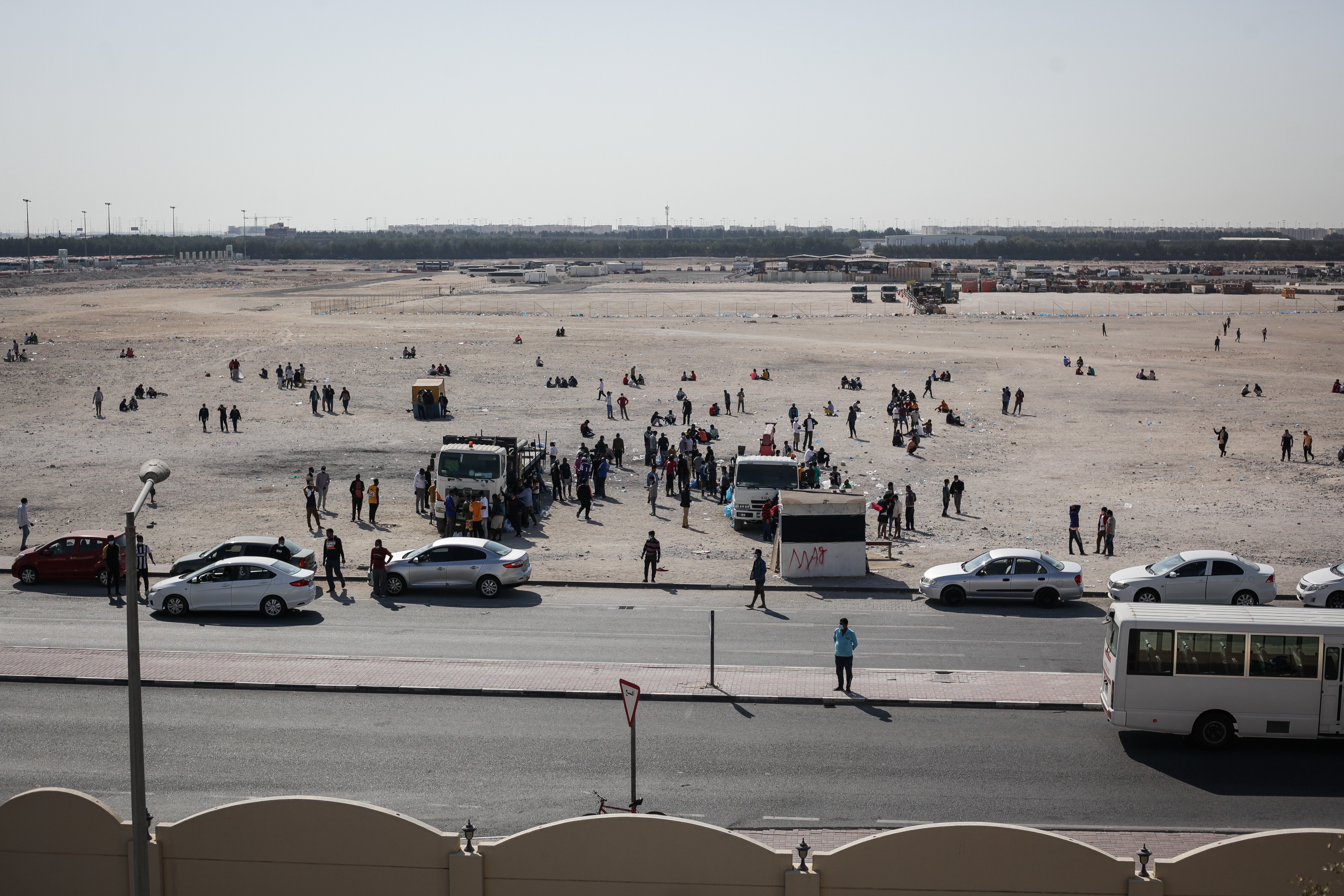
Youssouf and Ahmed, both from Togo, finish their weekly shopping at the Grand Mall Hypermarket. The first is a welder and the second a garage mechanic. They have been in Qatar for years, but have not been paid for three months. Delayed wage payment violates Qatar labour laws, but is often used to keep control of workers, they think.
Since March 2021, Qatar has set the minimum wage for all private-sector workers at QAR 1,000 (£220) per month. QAR 500 (£110) per month is given by the employer for accommodation costs. Finally, QAR 300 (£66), per month is allocated for food or about £2 per day. Also, employees have the right to leave Qatar without the sponsor’s approval or change companies freely – provided he or she does not join a competing firm in the same industry.
However, the two Togolese workers have seen few benefits since the reforms were announced.
“We did not get any benefits out of these so-called reforms. If I challenge my employer, for example by complaining at the Ministry of Labour, he will simply send me back home.
“But I have to work and earn money... So, in fact, the employer is still stronger than you. You can always go on strike in your room but you are not paid, so your boss simply does not care. Going to court is not an option either. It will take months, which we cannot afford as we have to send money to our families,” they tell The Independent.
Last year, Qatar’s Ministry of Labour set up an online platform where workers can report abuse anonymously. In the first year, 25,000 complaints were registered, but migrant workers without savings to rely on cannot afford the average waiting time to appear in court.
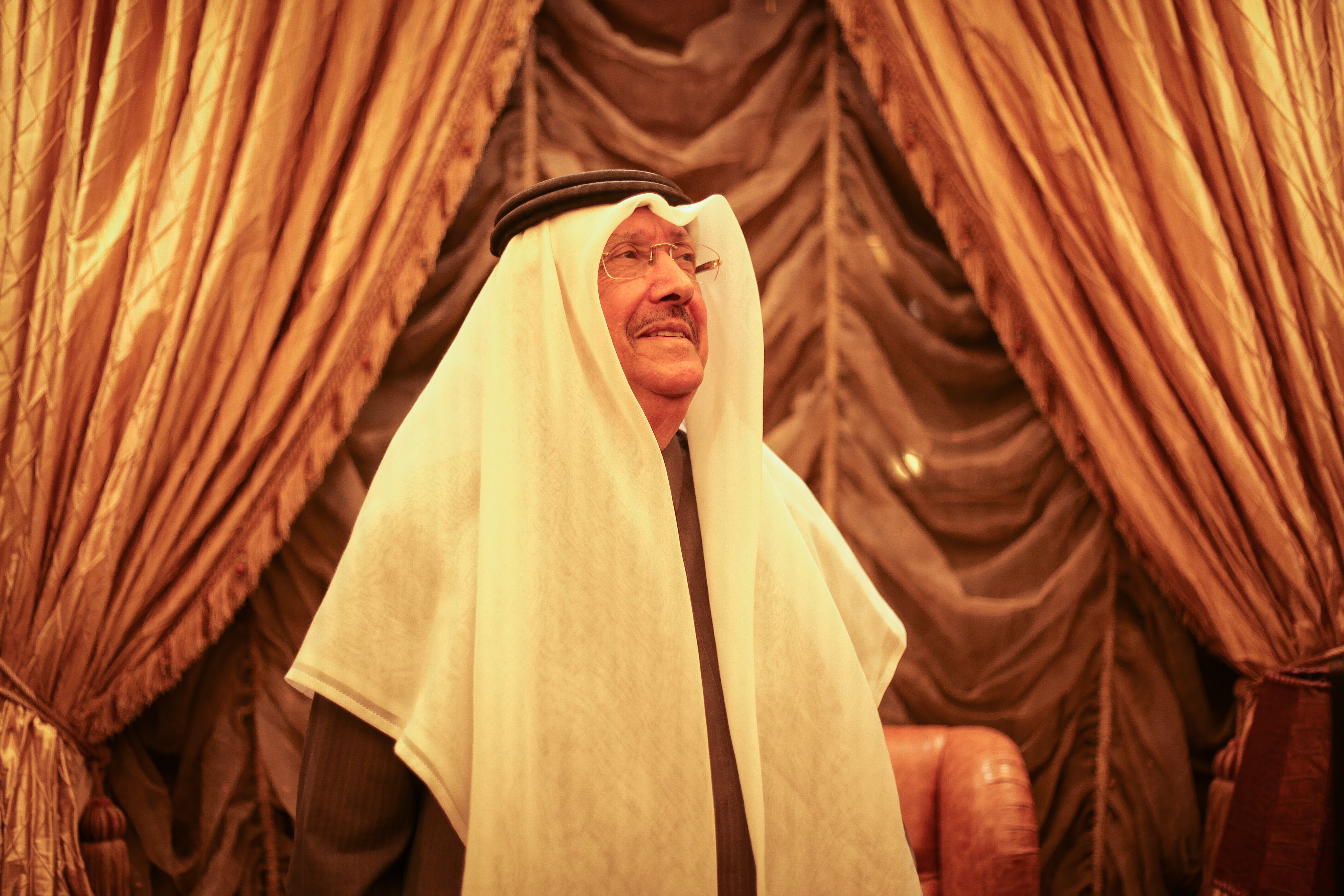
According to the ILO, it takes a minimum of three months to make it to the court, and often more as summoned employers often skip it.
Nevertheless, at the ILO office in Doha, progress made by Qatar in terms of workers’ rights is celebrated, even if there is still room for improvement. The Supreme Committee for Delivery & Legacy (SC), the government body in charge of supervising the construction of World Cup-related infrastructures, never responded to The Independent’s requests for interviews and requests to visit workers’ camps.
However, Ahmed Hussain al-Khalaf, a wealthy Qatari businessman who heads 20 companies and 20,000 employees, did talk toThe Independent.
His glittering villa is decorated with portraits of proud men, paintings of hunting and battle scenes as well as representations of ferocious wild animals.
“The World Cup has greatly accelerated improvements in the living and housing conditions of workers,” he says.
“Today, businesses must have proper and approved housing. That cannot be compared with the past. The same applies to migrant workers’ rights. I would say their lifestyle in Qatar is really better than before,” he adds.
“When I read all those criticisms about my country being awarded the World Cup 2022, I think that is just jealousy.”
After eight years living in the Industrial Area, Alfred, a Kenyan worker, left to live as his employer relocated him. Small buildings with facades blackened by pollution and dust sit next to one another. Cement factories, garages, and waste disposal sites are in the middle of labour camps where work clothes dry on windows.
“There are not four people per room, but sometimes eight, on bunk beds. Showers and kitchens are in a state of despair. Let alone ventilation noise, it is a nightmare. In the summertime, that’s even worse. 50 degrees and fires are not uncommon in these camps that are not at all up to safety standards,” he says.
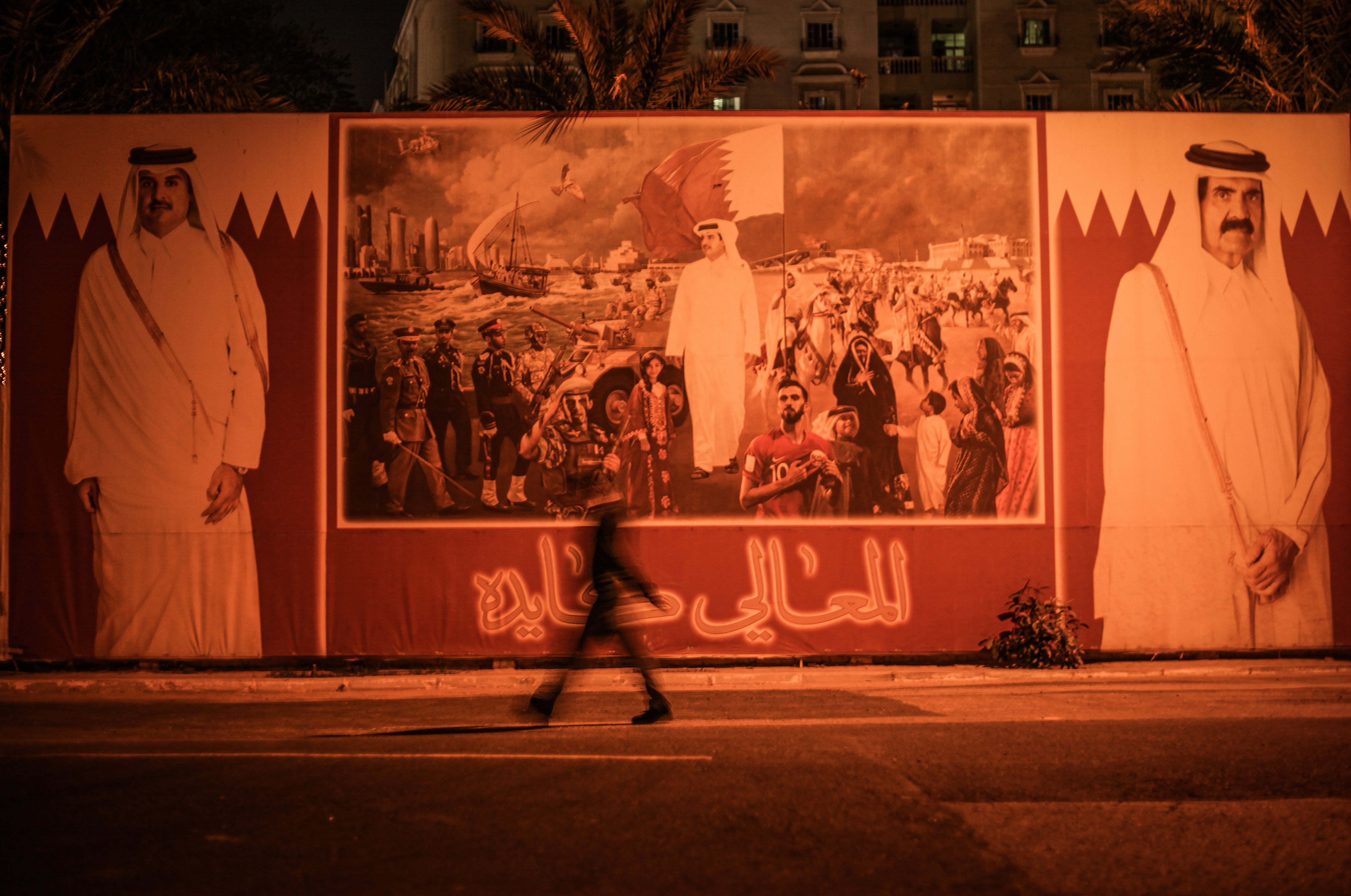
Alfred asks the cab driver to go down an alley where there is a large, flame-blackened apartment. “We don’t know if there were any deaths or injuries, the media here never talks about it” he adds.
Our vehicle reached a location where there is no housing, but new factories.
“Some companies house workers directly in the factory, it is illegal but at least workers’ true living conditions are hidden from public view and it slashes operational costs,” reveals Alfred.
“Before, the Industrial Area was much worse, but improvements are not enough. Sometimes they just paint facades to make it look decent, but inside, believe me, it is still unbearable.”
* Some names have been changed







